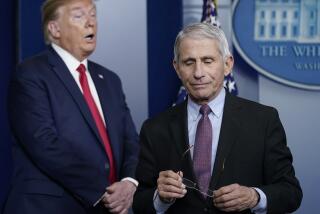The Los Angeles Times Book Prize,...
- Share via
The story of American science’s emancipation from its European precursors.
Looking back, Benjamin Gould saw American awe of European science as having bred “not self-reliance, but self-distrust and intellectual timidity.” Now, however, the unblinkable fact of European scientific superiority inspired not humility and resignation but appeals to national honor and calls to action. In 1846 an American congressman pronounced it “a disgrace to the most enlightened people on earth” that Americans got their astronomical data chiefly from Europe. Bache and Henry deplored the tendency to base American scientific reputations on European approval, and a Philadelphian viewed it as a despicable “want of moral courage.” In 1849 the geologist James Dana mourned that “our country is the only one that seems to take no pride in its scientific men,” and Henry thought it high time for Americans to show “a scientific esprit de corps.”
Americans began to follow the French in scientific chauvinism. The Scottish chemist James Johnston protested the tendency in his American visit of 1849-50. The naturalists called for an American nomenclature, he reported, the geologists disdained to label their formations with the names of European localities, the mineralogists insisted on an independent analysis of American minerals, and a New York writer on agricultural science felt bound to analyze from scratch all species grown in his state, though most had already been thoroughly done in Europe. A German entomologist complained that Americans, to forestall European descriptions of American insects, rushed prematurely into print. In 1849, as one 26-year-old American to another, Spencer Baird congratulated Joseph Leidy on a recent contribution dealing with the internal plant life of animals. “It is a great discovery,” Baird wrote, “and we are a great people.”






